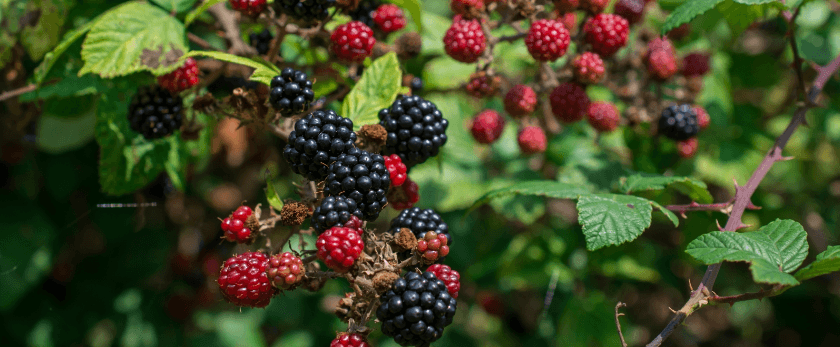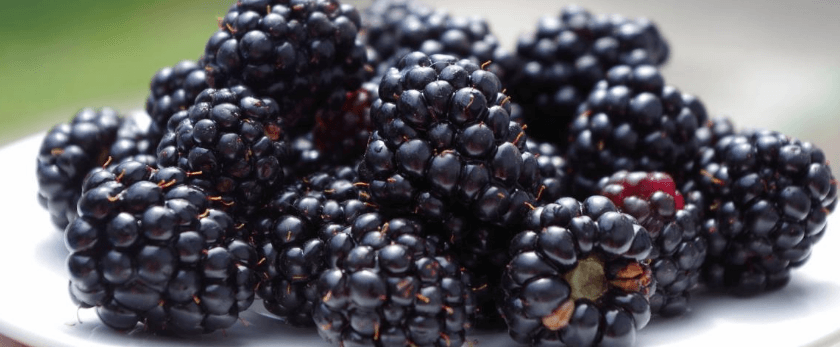Blackberries are a delicious and nutritious addition to any garden. Not only do they provide a tasty treat, but they also offer numerous health benefits, such as being high in antioxidants and vitamins. Plus, growing your own blackberries is a great way to reduce your carbon footprint and promote a more sustainable lifestyle. In this article, we will discuss how to grow blackberries in your own backyard, including care tips, the best time to grow, and common problems to watch out for.
Care for Blackberries
Blackberries are relatively easy to care for, but they do require some attention to ensure a healthy and productive harvest. Here are some key care tips for growing blackberries:
Watering
Blackberries need consistent moisture to thrive, especially during the growing season. They require about 1 inch of water per week, either from rainfall or irrigation. It's important to water deeply and evenly, making sure the soil is moist but not waterlogged. Avoid overhead watering, as this can lead to fungal diseases. Instead, use a drip irrigation system or water at the base of the plant.
Light
Blackberries prefer full sun, meaning at least 6-8 hours of direct sunlight per day. They can tolerate some shade, but this may result in a smaller harvest. Make sure to plant your blackberries in a spot that receives ample sunlight throughout the day.
Soil
Blackberries thrive in well-drained, fertile soil with a pH level between 5.5-6.5. If your soil is too acidic, you can add lime to raise the pH level. If it's too alkaline, you can add sulfur to lower the pH level. It's also a good idea to amend the soil with organic matter, such as compost, to improve its texture and nutrient content.
Fertilizer
Blackberries are heavy feeders and require regular fertilization to produce a bountiful harvest. Before planting, mix in a balanced fertilizer, such as 10-10-10, into the soil. Then, in the spring, apply a nitrogen-rich fertilizer, such as blood meal or fish emulsion, to promote healthy growth. Avoid fertilizing in the fall, as this can stimulate new growth that may be damaged by winter frost.
Pruning
Pruning is essential for blackberry plants to maintain their shape, promote new growth, and prevent diseases. In the late winter or early spring, remove any dead, damaged, or diseased canes. Then, thin out the remaining canes, leaving about 5-7 of the strongest and healthiest ones. As the canes grow, train them to a trellis or support system to keep them upright and off the ground.

Best Time to Grow Blackberries
The best time to grow blackberries depends on your location and climate. In general, blackberries are best planted in the early spring, after the last frost has passed. This gives the plants enough time to establish their root system before the hot summer months. However, if you live in a warmer climate, you can also plant blackberries in the fall, as long as you provide adequate water and protection from frost.
Common Problems with Blackberries
While blackberries are relatively easy to grow, they can still face some common problems. Here are a few to watch out for:
- Pests: Blackberries can attract pests such as aphids, spider mites, and fruit flies. To prevent infestations, regularly inspect your plants and remove any affected leaves or fruits. You can also use natural pest control methods, such as introducing beneficial insects or using organic sprays.
- Diseases: Blackberries are susceptible to diseases such as powdery mildew, rust, and cane blight. To prevent these diseases, make sure to plant your blackberries in well-drained soil, provide adequate air circulation, and avoid overhead watering. If you notice any signs of disease, remove and dispose of the affected canes immediately.
- Birds: Birds love to feast on ripe blackberries, so it's essential to protect your harvest. You can use netting or bird scare devices to keep them away from your plants.
Conclusion
Growing blackberries is a rewarding and eco-friendly activity that anyone can do. By following these care tips, planting at the right time, and being aware of common problems, you can enjoy a bountiful harvest of delicious and nutritious blackberries. So why not give it a try and add these tasty berries to your garden? Your taste buds and the planet will thank you.










